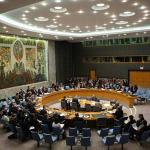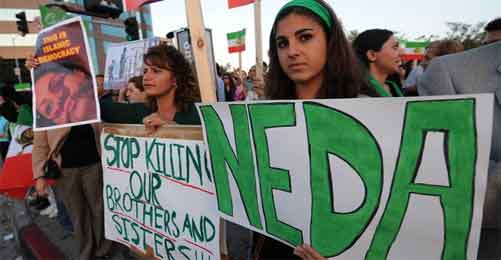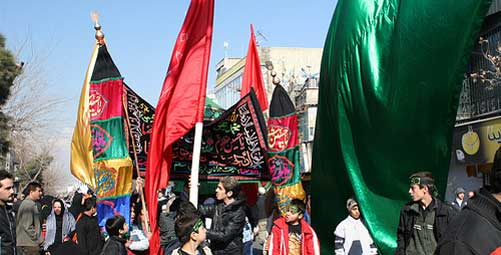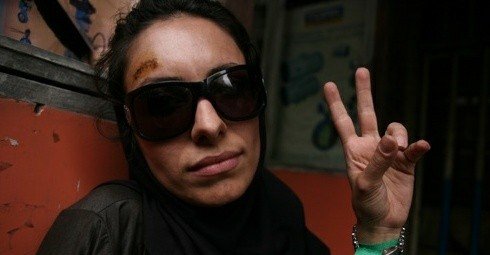Process of globalization has two sides. A good side and a bad side! Globalization, as used in this article, is the good side of the development of free-market world economy; a historical horizon far brighter than the Soviet Comintern. The horizon of fulfillment of the bourgeois revolution; de-nationalization of markets as a precondition for international labor unity.
In high-growth societies, where industrial, financial, and democratic pillars of the society are raised on "social contracts", globalization stands for a new stage of free-market development. It paves the way for the movement of market actors and development of various aspects of production, distribution, consumption, raw-material flow, technology, capital and labor as well as art, culture, language, information, mass media, leisure and entertainment, sports, fashion, migration patterns, population, demography etc. In low-growth societies of Africa, Latin America and Asia, with their underdeveloped industrial, financial, and democratic structures, it comes like a tsunami, washing away old social, political, cultural, and ecological habitats of these unstable, troubled societies; only to reactivate reactionary ideologies such as Talibanism. The explanation of this duality lies in the definition/objectives of Globalization.
Globalization as statistical results
Definitions are easy to come with, but not so easy to agree upon. Globalization is defined in many different ways; "integration of nations" , "de-nationalization of societies", "flattering of the world", "modern colonization", "capitalist internationalism". To avoid a "definition conflict" we begin with the definition made by the IMF. One of the main policy-making institutions of the globalized capital: "Globalization is integration of economies through the movement of goods, services, labor power, and capital across borders, together with broader cultural, political, and environmental dimensions" (from "Globalization: A Brief Review" by IMF Staff, May 2008). The "cultural, political, and environmental dimensions" of globalization seem to be mere phrases of courtesy though they are not elaborated any further in this report.
The report examines the increasing rate of globalization of goods, capital, and people (labor power) during the last three decades. It confirms that the growth of global markets has helped promote the following aspects of economy:
* trade of goods and services (42.1% to 62.1 % of world GDP)
* foreign investments (6.5 % to 31.8% of world GDP)
* international claims (bank loans) (10% to 48% of world GDP)
* number of foreign workers (2.4% or 78 million to 3 & or 191 million of world population)
According to this report global markets are thus helped to promote efficiency through competition and division of labor and have gained access to more capital, technology, cheaper imports and larger export markets.
Proponents of globalization believe that "average" achievements of the global integration favor not only capital movement, but the whole humanity as well.
But world's global markets (i.e different countries) are at different levels of development. That is exactly why we need a globalization process. And that is why these "average" statistics do not reveal the varying impacts of globalization on peoples "real", daily, personal, economical social, or political life. These impacts are different. One can not summarize his feeling as "averagely" comfortable having one foot in boiling water and the other foot on freezing snow. Such general "statistical summaries" do not reveal how different countries are affected.
Wells of the Middle East
Iran is a vast country with a diversity of ethnic minorities, cultures, climate zones, production modes and settlement patterns. Regarding population density and infrastructural facilities, there is a large gap between rural and urban areas as well as different provinces. The country's oil and natural gas wells and revenues are nationalized and controlled by the central government seated in the 15-million capital of Tehran where nation's wealth and services are concentrated.
Like Chinese silk, Inca gold and Indian spices, wells, no matter oil or water, have always been important in Middle Eastern politics! In the past, caravans had to pay to the owners of desert wells in order to use the water. These wells were sometimes destroyed by desert bandits if their owners refused to pay "protection tax" to these bandits. According to historian Al- Tabari (838-923 A.D.) even prophet Mohamed made raids on wells around Mecca during his initial struggle to subordinate rival tribes.
Today, water wells of the Gulf are replaced by oil wells on the political atlas of the region. They are the main cause of regional and international ("global") political conflicts and economic horse trading in the Middle East. The only difference being that oil wells are of such strategic global importance that their security often requires international military interventions. Together with the permanent flow of millions of barrels of crude oil, militarism is the main dimension of globalization of oil producing societies of the Middle East. Compared to military activities, oil production is not a labor-intensive undertaking. That is why globalization of the wells of the Middle East does not necessarily require "broader cultural, political, and environmental dimensions".
According to the above mentioned IMF-report, globalization tends to increase international division of labor, foreign investments, international claims (loans), and international labor mobility. In the "oily" globalization of a non-democratic Middle East, these factors hardly act in favor of social development as far as labor participation in decision-making is concerned. Thus Globalization is little help in solving the Marxian conflict between the collective mode of production and private mode of decision-making (as distinguished from private mode of ownership).
Foreign investments and international claims, naturally, come with financial and economic conditions and pressure on recipient countries. With limited tax incomes, local governments are then forced to transmit this pressure on to the "small- and-poor" of the society; workers, women, youth, minorities, and natural resources; a mechanism which deepens the oppressive methods of political governance and the unsustainable exploitation of natural resources and the ecological environment. Together with corruption and injustice in the distribution of the global wealth, they prepare the breeding grounds for social disorder and violence. The recent election (or rather "selection") conflict in Iran is the reaction of a mainly young and educated population to such a crippled globalization process.
Iranian "selections", labor movement, and globalization
Majority of Iranians are unemployed and young. 30 % are unemployed young. The young being 65 % of the population under the age of 30. Another large portion of the population lives under the poverty line. Women's and minorities' rights are limited by religious "Sharia" laws. The growing worker population is prevented from having independent organizations through oppressive methods of the government and the sporadic nature of traditional small workshops. Nevertheless, the Iranian labor movement has experienced several political "worker" movements from "pro-Soviet republic" of (Iranian) Azerbaijan to the "semi-feudal-anti-imperialist" Islamic republic. This labor movement has now gained the historical perspective necessary to recognize the importance of independent social organizations in a genuine labor movement. The Islamic republic of Iran is highly alert on independent worker organizations and any attempt in this direction is brutally suppressed. Yet, the ongoing struggle of power between the bureaucracy-industry group and the clergy-military group within the government has sharpened to such a degree that labor movement has gained a playground to act and organize progressive forces of the society.
In June 2009, large demonstrations were organized by the urban youth and workers, women and minorities. The so called "election" campaigns of candidates ("selected" and approved by the regime), were soon turned into a referendum against the regime. As a result the "global" legitimacy of the Iranian government was severely damaged forcing both the US and the EU to reconsider their soft attitudes towards the clergy-military group following Barack Obama's Speech on global security and partnership in Middle East at Al-Azhar University in Cairo.
Security and economic development in partnership and competition with emerging new markets of the world are key words in Obama's globalized New World Order. The main threats being international terrorism, some countries nuclear pursues, and political instability. But global development of free-market capitalist economy, as distinguished from colonial capitalism, requires more than security and competition. It requires democratic and civil rights and free elections in the new emerging markets. Without these preconditions globalization would be a threat rather than an opportunity. It would lead to social degeneration of human labor in a deepened international division of labor, and shrinking possibilities of workers, women, and minorities to get organized under non-democratic governments. The message of June uprisings in Iran to the Western world was loud and clear: We want international cooperation, but do not accept globalization at the cost of international recognizing suppression of our democratic rights!
"Good" globalization means global information and communication, increased social awareness, international solidarity and labor-cooperation. Globalization is a political project led by the US and the EU to promote and develop free markets. In doing so it is confronted with the dilemma of cooperation with totalitarian regimes of low-growth countries for the sake of global security and easy access to global raw-materials and cheap labor markets, on the one hand , and a genuinely global development of the modern capitalist production on the other. Just like any other socio-political movement, leaders of this political project can choose between long-term or short-term strategies. In the Iranian case a long-term strategy means taking part for civil rights and democracy. It means actively supporting democratic movements and forcing the regime to accept basic civil rights of its citizens.
When people around the world expressed their deep sympathy and solidarity with the June uprisings in Iran, a new dimension of the new globalized world was revealed; unmediated international information democracy on the Internet. Information is no more than a mouse-click away from the public opinion and cannot be withheld by bribed conservative politicians or controlled mass media. Public opinion is now able to immediately follow global events in distant countries and show its solidarity and demand for fair partnership with these countries based on democratic global development.
Any horse-trading between conservative governments of US/EU and local anti-democratic governments of the region will be immediately revealed as a disappointment for Iranians and world public opinion. Then it will certainly backfire. Like Marx once said, such a "bad" globalization would be "worse" than a "good return to the glorious past", as is religious ideology of the Islamic Republic of Iran! And this would be "history repeated as a tragedy".










